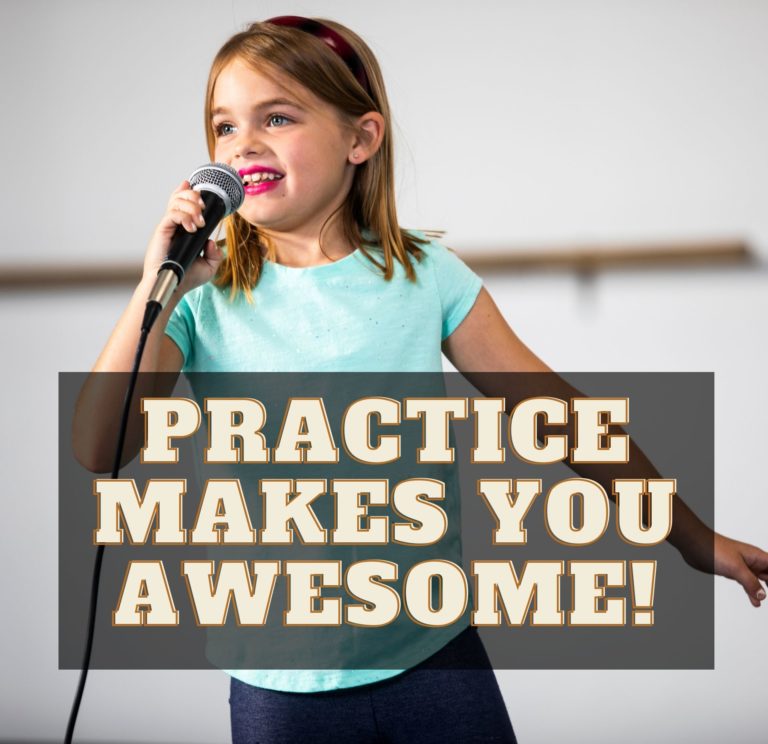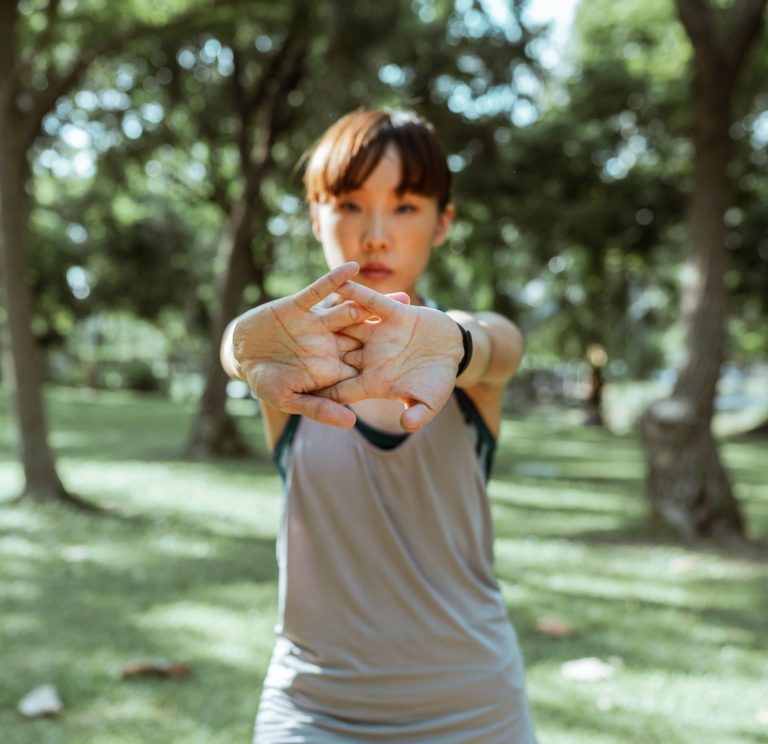I Help people sing and speak expressively and powerfully no matter the level of experience :)
HI, I'M JORGELINA
FREE 20 MIN AUDIO LESSON
Grab today my 20 min INTRO TO HOLISTIC SINGING audio lesson!
GRAB IT NOW

Frequently asked questions by beginner singers
Today I want to share with you some of the most frequently asked questions by beginner singers. Twelve years of teaching voice have showed me that there are some concerns that most people have when they start their exciting singing journey. So chances are if you are one of them, some of your questions will be answered here! Keep on reading😎
Table of Contents
HOW LONG DOES IT TAKE TO LEARN TO SING

I have covered this topic in another article. But I will quickly go over it here.
The answer is something no one wants to hear: IT DEPENDS. It depends on you. How long it takes to learn to sing well will depend on different factors, divided into two big groups:
- The things you can control
- The things you can’t control
Allow me to explain. As a teacher, I specialise in adults (although if your child wants to learn singing, we have specialised teachers in singing teaching for kids and teens at Auckland Contemporary Singing School). And most adults come to my lessons with a body full of history. Through the years your body learns patterns and adopts habits that will shape your voice. So you don’t really start singing with a new instrument. Your voice is already functional, you already have a functioning instrument and depending on what you have built through the years, your voice will adapt.
The things you can control
You do have control over many things that are crucial in your singing progress:
- The amount of time you practice
- The time of the day you practice
- The new posture habits you can adopt
- The new breathing patterns you can adopt
- Your mental state (you can go to a therapist, meditate, visualize, practice affirmations, etc). Remember that A LOT of your progress depends on your thinking patterns and your mindset.
- The teacher you choose
- The singing method you choose
- The singing goals you choose
- Your strategy to reach your goals
- The helpers and guides you choose to help you in your path
- The singing motivation you feed yourself with
- Your vocal health
- The kind of singer you want to be
- The amount of music you surround yourself with now
- The amount and kind of exercise you practice
- Your stress levels
The things you can’t control
- Your anatomy
- Your genes
- The choices you made in the past and the actions you took in the past
- Your family and the circumstances you were brought up with, the amount of music you were exposed to when you were younger
So how long does it take to learn singing then?

All that said, if you are willing to have an open mind and a growth mindset, you have a supportive environment, OK vocal health, a good teacher, clear goals, and regular, consistent practice, you will be able to make steady progress within a few months. There is an organic time that is required to master singing and that is not something that comes quickly. You won’t master singing in one year, or two, or three, although you can get pretty good at it!
BUT if you don’t have all the above elements, your progress will still be steady (as long as you practice consistently). It will take you longer, but you will gain so much in the process and learn valuable life skills through singing. And after all, why the rush? You will learn at your own pace. Just look at all the things you can effectively control!
How long do I have to practice singing for?

This is the tricky one. Most beginner students take some time to establish a practice routine at home. The reality is that if you don’t practice during the week, you are likely wasting time and money going to singing lessons. The singing lesson is a guide when the adjustments are made, but if you don’t practice during the week you won’t develop muscle memory and your progress will be rather slow. Not only you won’t develop muscle memory and technique, but you will also forget all the corrections before you have your next lesson.
Coming back to the question of how long do I have to practice singing for? Simple answer: CONSISTENCY over quantity. 20 minutes 6 days a week is much better than 1 hour once a week. If you practice a bit every day you will improve week after week, and I see that in all the students I have and have had who do practice during the week.
Do I have to have a special talent for singing?

I covered a bit of this one in another article. As mentioned above, there are just a handful of things you have no control over. “Natural talent” (more often not that natural but just good luck of being born at the right time in the right place), can’t be changed but you can effectively develop your voice to a quite high standard if you are willing to do what it takes.
Can I learn to sing through youtube videos?

Kind of. The problem with the YouTube videos is that you don’t have direct feedback from a teacher. So you can easily pick the wrong exercises and reinforce bad habits rather than developing better ones to bring your voice to balance. Plus, YouTube videos won’t give you a personalised integral training but more of a handful of disconnected “singing tips”.
THAT SAID. If you already sing, and you already have had training, and you already understand how your voice works, you can benefit a lot from the vast amount of singing resources available on YouTube. So the best case scenario, at least at the beginning of your training, is having a singing instructor that helps you set the foundations of your vocal technique. Then you can have fun researching on YouTube and other platforms different resources that you can add to your singing training.
Do I have to warm up my voice before singing?

Absolutely. Some voices are much more resilient than others, and that is why some singers would argue that you don’t need to warm up your voice. People with sensitive voices are more prone to be negatively affected by not properly warming up their voices before singing. It also depends on what you are going to be singing after your warm-up and how long you sing for.
As I said, everyone has a different voice, and that also means that everyone needs a different warm-up time. Your teacher will help you define your ideal warm-up, but generally allow around 10 minutes to warm up your voice before working on harder technical abilities (belting, twang, etc), and songs.
Why do we have to make funny noises when we learn to sing?

I have lost count of how many adult students have complained that they feel silly because they feel they are making “silly noises” during the vocal training. Firstly, no sound is silly until you allocate that adjective to it. So it is purely a judgment that you choose to do. If you are going to give energy to words, concepts, and energy, I would suggest that you choose adjectives that help you in your singing journey rather than words that will become an obstacle. If you feel that you are silly because you are doing lip trills, and you have lots of fun with it, then the word “silly” might be a fantastic option for you. But if you decide that a certain sound is silly therefore you don’t want to do it or you practice it while having negative and distracting thoughts, then I would suggest you reconsider your word choice.
Remember that exercises are exercises. They are not there to make you feel silly. They are there to make a specific change in your voice, possibly one that you need right now (that’s why your teacher “prescribes it” to you). But as I said, if that makes you feel joyful and have fun, by all means, go for it!
Why does my voice get sore after practicing singing?

Most likely because you are practicing in a way that throws your voice out of balance. For example, you are pushing yourself too hard, using a breathing technique that is not functional for your voice. Or perhaps you just started your singing training and you are so motivated that you want to practice for a whole hour! As you develop yourself as a singer, you will develop resilience. Step by step. Patient.

Why do I run out of breath when singing?

Two reasons: because you are taking air in a way that is not functional for singing (for example, strongly pulling your belly in to breathe in), and because you haven’t developed air support yet.
Air support is not usually developed naturally. Especially during this time in history. We sit in chairs too much, which gives us a weak pelvic floor. Which affects both our breathing and our air support. So when we learn to sing we have to teach our body how to manage air intake and exhale in a way that is functional and beneficial for your voice. You have to learn to take enough air, in the right place, and to use it in a certain way to develop air support.
Interested in learning singing? Contact us today!
We offer:
- Singing lessons for kids and teens (Auckland – North Shore area) (Rockschool syllabus)
- Singing lessons for adults (Auckland – North Shore area) – holistic and integral singing (own syllabus)
- Group singing classes for adults in Auckland
- Online singing lessons and programs
Join our newsletter to get weekly singing articles and receive special offers!
I help people to develop their voice and singing from a holistic approach. I teach vocal lessons in person in Auckland, NZ, and online. Also stay tuned for my new online singing programs!❤️
My greatest passion has always been the voice, music and energy arts.
My personal and artistic journey has led me to understand that the voice and the body are fully connected, and that includes not only the physical body but also the mental, emotional and spiritual body.
Through holistic vocal training you not only learn to become a great singer while taking care of your voice, but you also improve your mental and physical wellbeing❤️
AUCKLAND CONTEMPORARY SINGING SCHOOL - COPYRIGHT 2024 ©
PRIVACY POLICY |
Terms and conditions |
refund policy |
x
Get the CHEAT SHEET now!
Subscribe now to receive the free cheat sheet - learn to sing a song step by step!
Thank you!
You have successfully joined our subscriber list.
leave a comment